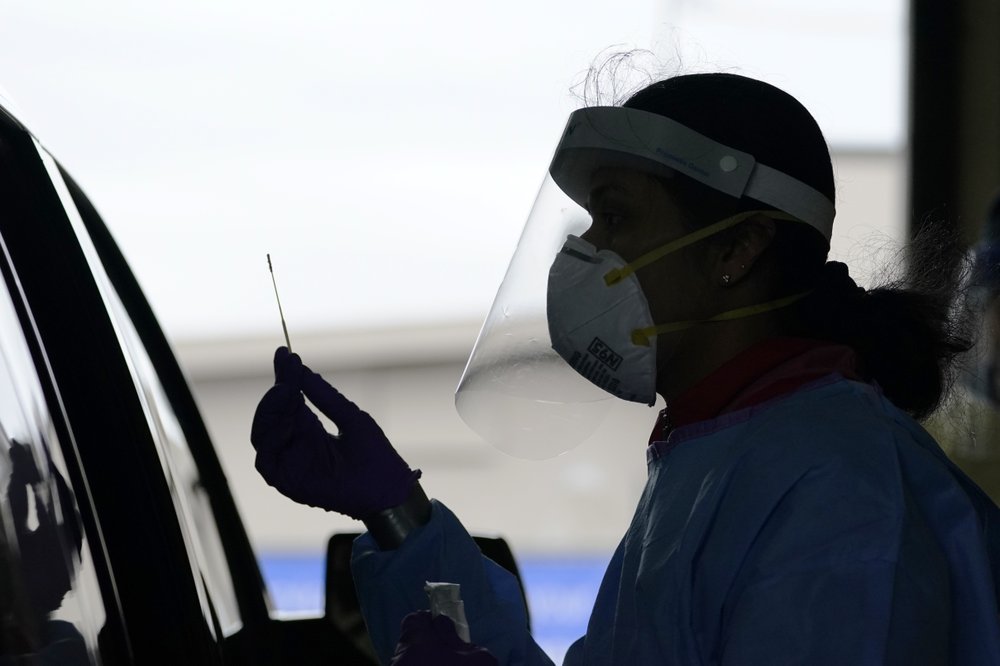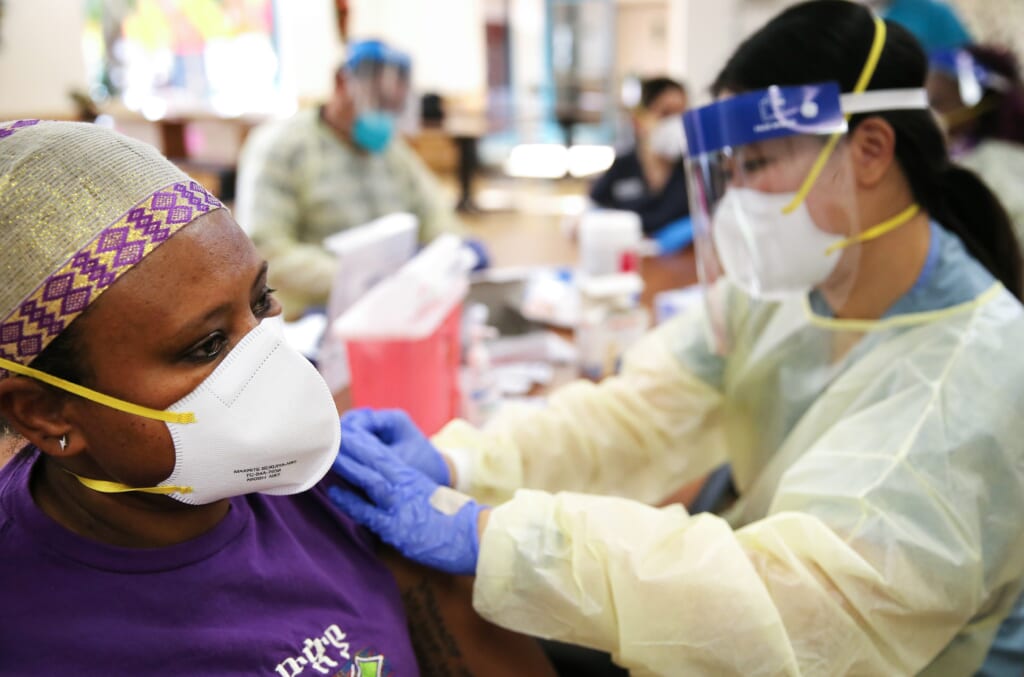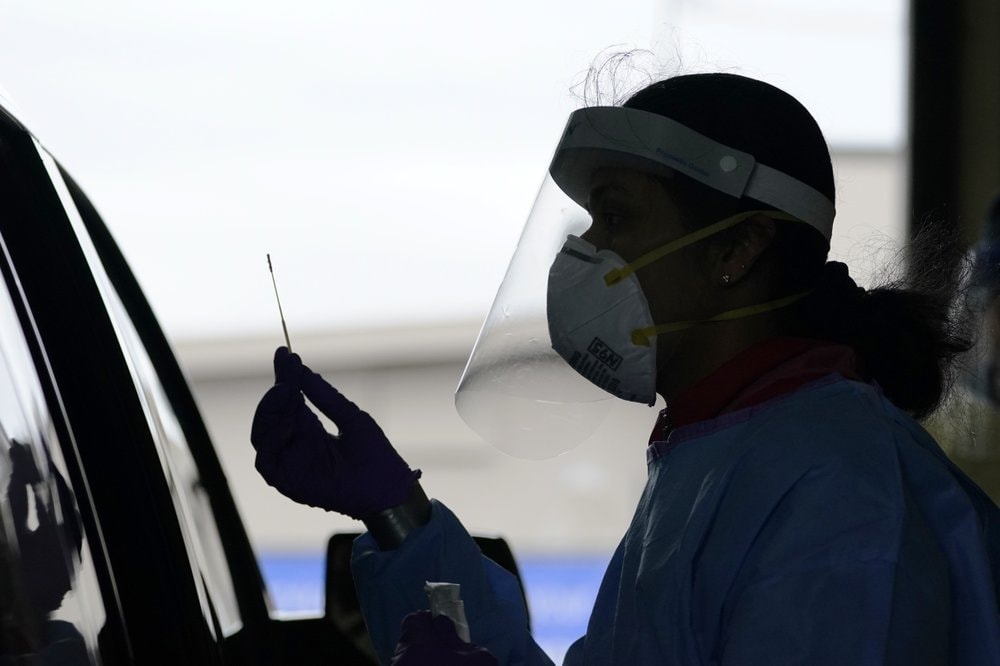Everything they ‘forgot’ to tell Black people about contracting COVID-19
OPINION: As we navigate the complexities COVID-19 vaccine access, we need to be mindful that Black people are also being denied access to critical coronavirus care routinely offered to white patients
Unbelievably, it is here: the year anniversary of living in the United States with the COVID-19 pandemic. Everywhere you look – it’s the topic of conversation. A year of less travel, fewer family visits, and sadly, over 500,000 people taken by this deadly disease.
I spent most of the last year doing everything in my power NOT to get COVID-19 and trying to do the same for my community and loved ones. I still got it, and my experience has shown me that, even as vaccines roll out for COVID-19, what we don’t know about treatment in the meantime can and will kill thousands more Black people.
Our nation is suffering, but only a portion of the population (read: Black and brown people) is simultaneously bearing the weight of this pandemic with a healthcare system that values profit over people and a rightful distrust of government-funded vaccinations. This is a recipe for disaster at the macro-level, but when you zoom in to the very personal view, it is even scarier to experience.
I felt prepared for preventing this disease – no going out, mask up, get groceries delivered, wash your hands, no public activities. I felt prepared to fight to get my mother the COVID-19 vaccine as soon as possible. I was prepared for everything, except for myself and five family members testing positive for COVID-19 in the same week. It became instantly clear that the healthcare systems in my current home state of North Carolina were also unprepared for my COVID-19 positive status.

Read More: April Ryan opens up about vaccine journey in personal diary
A recent poll found that white Republicans are most hesitant to get the coronavirus vaccine, but Black people are being denied access most often. Black Seminoles were excluded from COVID-19 vaccine priority status intended to ensure Indigenous communities were among the first to receive the vaccine here in the United States of America. In cities like Baltimore, only 26 percent of vaccinations are being distributed through the local health department, where the majority of Black residents would be seeking the vaccine.
As one of the many infected by the disease, I thought that, at a minimum, our healthcare system would be able to tell me what I needed to navigate the disease from home. What I found instead was a cavernous hole where compassionate, well-informed and easily communicated medical care should have been.
The lack of information, limited access to health providers, and race-based data all point to a broken healthcare system where Black people suffer and die, all while being denied life saving treatments and vaccines.
Current testing mechanisms remove primary care doctors from testing, leaving the entire primary care system disconnected from the COVID-19 care process. After my rapid test showed I was positive for COVID-19, I was given little-to-no additional information about quarantining, treatment, or what I should be on guard for to indicate a hospital visit was necessary.
Involving my primary care physician only deepened my frustration. They were unable to provide me with any information about my care and after two days of being promised a virtual appointment, here I sit a week later having had zero contact from the physician, who up until this point had been the main professional handling my medical care for years.

Read More: 11 Black luminaries who lost their lives to COVID-19
Where I DID find support, information and direct steps to take was the Internet. Twitter followers responded immediately and connected me with a group of mostly white women running Survivor Corps, a grassroots movement of COVID-19 survivors, founded by Diana Berrent. I found another organization called We Got Us that specializes in closing information gaps for Black people. These groups are offering invaluable information that saves lives.
Among the things I quickly learned: There is a recommended list of over-the-counter medications and vitamins, including Vitamin D3, Vitamin C, Mucinex, Day/NyQuil, Pepcid AC, melatonin, and aspirin, proven to help COVID-positive patients recover faster. When I finally got to speak with a nurse from my primary doctor’s office, I was told to “take over-the-counter medications for whatever symptoms you have.” That’s it.
There are TREATMENTS for COVID-19! The most readily available and consistently proven treatment to lower severe symptoms and keep people out of the hospital is the monoclonal antibodies infusion treatment. President Donald Trump, Rudy Giuliani, and Chris Christie all received it when they had COVID-19.
This treatment is FREE and literally sitting on shelves around the country, waiting to go into the arms of white patients frankly. These treatments must be delivered within seven days of your positive test for maximum results. Clearly, time is of the essence, but Black patients have the added hurdle of even learning the treatment exists.
As we navigate the complexities of getting Black people access to the COVID-19 vaccine, we need to be mindful that Black people are also being denied access to critical care routinely being offered to white patients. Testing only goes so far. Stopping this pandemic will require access, consistent information, and a constant demand for fair medical treatment for Black people navigating the aftermath of testing positive for COVID-19.

Leslie Mac is a Brooklyn girl, organizer, communications expert and Communications Director for The Frontline. She is a seasoned digital strategist and social media advisor, via LM Consulting, with clients that include Google, UltraViolet, Articulate, UMass Amherst, Amazon, Meadville Lombard Theological School, Canvas8, and The Advancement Project.
Have you subscribed to theGrio’s new podcast “Dear Culture”? Download our newest episodes now!
TheGrio is now on Apple TV, Amazon Fire, and Roku. Download theGrio today!
The post Everything they ‘forgot’ to tell Black people about contracting COVID-19 appeared first on TheGrio.

